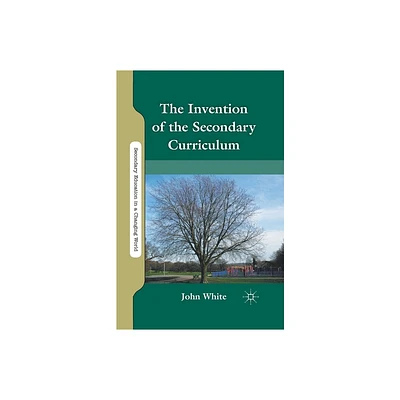Home
Teaching Politics Secondary Education: Engaging with Contentious Issues
Loading Inventory...
Barnes and Noble
Teaching Politics Secondary Education: Engaging with Contentious Issues
Current price: $34.95


Barnes and Noble
Teaching Politics Secondary Education: Engaging with Contentious Issues
Current price: $34.95
Loading Inventory...
Size: Paperback
*Product Information may vary - to confirm product availability, pricing, and additional information please contact Barnes and Noble
Winner of the 2018 Exemplary Research in Social Studies Award presented by the National Council for the Social Studies
Many social studies teachers report feeling apprehensive about discussing potentially volatile topics in the classroom, because they fear that administrators and parents might accuse them of attempting to indoctrinate their students. Wayne Journell tackles the controversial nature of teaching politics, addressing commonly raised concerns such as how to frame divisive political issues, whether teachers should disclose their personal political beliefs to students, and how to handle political topics that become intertwined with socially sensitive topics such as race, gender, and religion. Journell discusses how classrooms can become spaces for tolerant political discourse in an increasingly politically polarized American society. In order to explore this, Journell analyzes data that include studies of high school civics/government teachers during the 2008 and 2012 presidential elections and how they integrated television programs, technology, and social media into their teaching. The book also includes a three-year study of preservice middle and secondary social studies teachers' political knowledge and a content analysis of
CNN Student News
.
Many social studies teachers report feeling apprehensive about discussing potentially volatile topics in the classroom, because they fear that administrators and parents might accuse them of attempting to indoctrinate their students. Wayne Journell tackles the controversial nature of teaching politics, addressing commonly raised concerns such as how to frame divisive political issues, whether teachers should disclose their personal political beliefs to students, and how to handle political topics that become intertwined with socially sensitive topics such as race, gender, and religion. Journell discusses how classrooms can become spaces for tolerant political discourse in an increasingly politically polarized American society. In order to explore this, Journell analyzes data that include studies of high school civics/government teachers during the 2008 and 2012 presidential elections and how they integrated television programs, technology, and social media into their teaching. The book also includes a three-year study of preservice middle and secondary social studies teachers' political knowledge and a content analysis of
CNN Student News
.


















